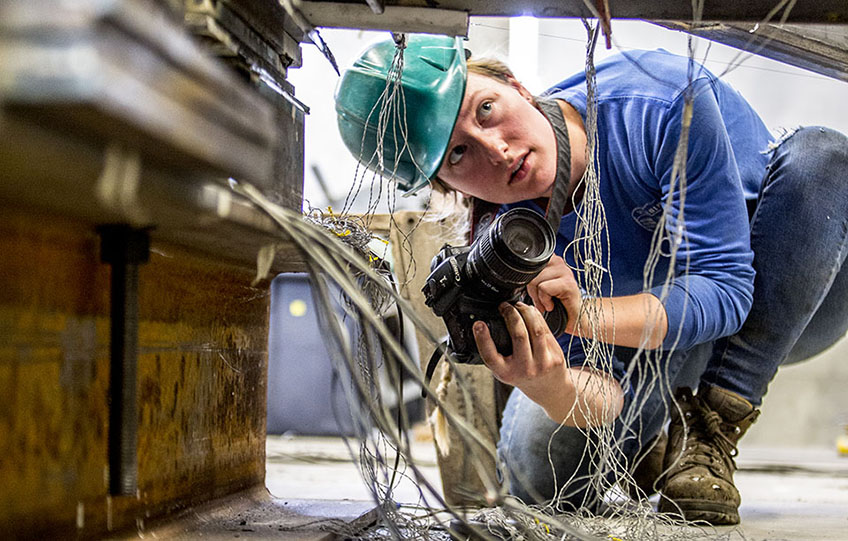Why CEE Bachelor's programs AdmissionsCurriculumAdvisingTuition, financial aid & scholarshipsStudent organizations
Why study civil and environmental engineering?
From transportation to water quality to earthquake resilience, civil and environmental engineers are crucial in enabling livable, sustainable cities, healthy environments and strong economies.
Civil and environmental engineers design, build, operate and maintain urban environments to improve people’s lives. CEE faculty and students conduct cutting-edge research on various topics and are committed to designing solutions for the future by addressing pressing societal needs.
UW is #59 among best national institutions and #20 for top public schools
UW is #9 among world universities for academic disciplines
UW Engineering is #21 among best overall undergraduate programs
Our bachelor’s programs

Bachelor of Science in Civil Engineering (BSCE)
The BSCE program offers a big-picture perspective of civil and environmental engineering. Civil engineers use science and math to plan, design, build, operate and maintain infrastructure that helps people and the planet.

Bachelor of Science in Environmental Engineering (BSENVE)
The BSENVE program offers a specialized focus on environmental engineering. Environmental engineers develop innovative solutions to address environmental challenges and emerging issues related to water supply, climate change, new energy resources and sustainability.
Admissions
There are many pathways for admission into our department, and different deadlines you will want to keep in mind as you prepare to apply. Read on for the different requirements, whether you are a freshman, an Engineering Undeclared student, a transfer student or an interest changer. View admission requirements.
Curriculum
Explore program prerequisites, general education courses, and major coursework.
Program degree sheets, which include a sample four-year plan on page 2 of each PDF, can help you get an idea of what your freshman, sophomore, junior, and senior years may look like.
Advising
If you have questions about the program, application process, course planning, class registrations, or general inquiries, schedule an appointment with an undergraduate adviser. You can also attend an information session to learn more about our programs.
Tuition, financial aid & scholarships
Many resources are available to help students fund college, from financial aid to scholarships to work-study programs. Every year, UW awards more than $344 million in aid to 60 percent of undergraduate students. View scholarships and financial aid opportunities.
Student organizations
Outside of the classroom, students continue to learn and hone their skills through various clubs and organizations, especially for engineers. In addition to networking with colleagues and peers, students gain experience participating in competitions, global research efforts and much more. Explore student clubs.